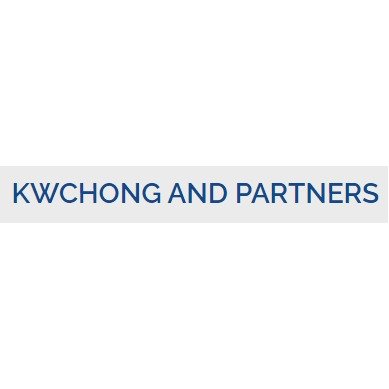Best Sanctions & Export Controls Lawyers in Ipoh
Share your needs with us, get contacted by law firms.
Free. Takes 2 min.
List of the best lawyers in Ipoh, Malaysia
About Sanctions & Export Controls Law in Ipoh, Malaysia
Sanctions and export controls law in Ipoh, Malaysia is part of a legal framework that governs the movement of goods, technology, and services across borders. These laws are designed to align with Malaysia's international obligations, particularly those related to United Nations Security Council sanctions. In Ipoh, as in the rest of Malaysia, these laws impact businesses involved in import and export activities, technology transfers, logistics, and finance. Compliance ensures that Malaysian businesses do not inadvertently violate international sanctions or contribute to prohibited transactions. The laws also help Malaysia maintain good standing with global trading partners and international regulatory bodies.
Why You May Need a Lawyer
Several situations might necessitate professional legal assistance in the area of sanctions and export controls in Ipoh. Businesses often face complex requirements when trading sensitive or controlled goods, such as electronics, chemicals, or defense-related equipment. Unintentional breaches, such as exporting to a sanctioned country or person, or failing to obtain the correct authorization, can result in heavy penalties or criminal charges. Additionally, companies dealing with cross-border payments, mergers or acquisitions with international stakeholders, or foreign investments may need legal guidance to ensure compliance. Even well-intentioned businesses can fall afoul of these regulations without specialized legal advice, making a lawyer’s support crucial for navigating potential risks and avoiding costly mistakes.
Local Laws Overview
Sanctions and export controls in Ipoh are primarily regulated under Malaysia's Strategic Trade Act 2010 (STA), which controls the export, transshipment, and transit of strategic items, including arms and dual-use goods. The act defines the licensing requirements and stipulates penalties for non-compliance. Secondary legislation and regulations outline restrictions on certain countries, organizations, or individuals, based on Malaysia’s obligations to the United Nations and other international treaties. Businesses and individuals must also consider regulations from Bank Negara Malaysia and the Royal Malaysian Customs Department, as they oversee financial flows and customs clearance, respectively. Understanding local compliance requirements is essential for any company or individual involved in international trade or logistics in Ipoh.
Frequently Asked Questions
What are sanctions and export controls?
Sanctions involve restrictions or prohibitions on doing business with specific countries, entities, or individuals based on foreign policy or security reasons. Export controls refer to legal requirements that regulate the export or transfer of certain goods, technology, or information for reasons such as national security or international obligations.
Who must comply with sanctions and export controls in Ipoh?
Any individual or business in Ipoh engaged in the export, re-export, or transit of regulated goods, technologies, or services must comply, even if the transaction involves foreign parties.
What happens if I violate sanctions or export controls?
Violations can result in serious consequences, including hefty fines, seizure of goods, revocation of licenses, civil penalties, or even imprisonment for severe breaches.
How do I know if my goods are subject to export controls?
Check the Strategic Trade (Restricted or Prohibited Goods) List provided by the Ministry of International Trade and Industry (MITI) or consult a legal expert for guidance on classification and requirements.
Do I need a license to export goods?
Yes, if your goods are classified as strategic or dual-use items under the Strategic Trade Act. The type of license and the application process depend on the nature of the goods and destination country.
Are services like software or technology transfers controlled?
Yes, in many cases intangible transfers, including software, technical data, or knowledge to foreign parties, can be covered by export controls regulations.
Can I conduct business with companies or persons in sanctioned countries?
Generally no, unless you have obtained special authorization from relevant authorities, as transactions with sanctioned entities are heavily restricted or completely prohibited.
Is there a list of restricted parties I should avoid dealing with?
Yes, you should refer to Malaysia’s published lists and United Nations Security Council listings to screen your business transactions regularly.
How often do the rules and lists update?
Sanctions and control lists are updated frequently to reflect evolving geopolitical situations, so regular monitoring or subscribing to updates from authorities is critical.
Can I appeal or challenge a penalty?
Yes, there are established procedures for appeal under Malaysian law, but it is important to act promptly and to seek experienced legal counsel for advice on your particular case.
Additional Resources
Those seeking further information or support regarding sanctions and export controls in Ipoh, Malaysia, may find these resources helpful:
- Ministry of International Trade and Industry (MITI) - Oversees trade regulations and licensing under the Strategic Trade Act - Royal Malaysian Customs Department - Provides clearance guidance and customs compliance - Bank Negara Malaysia - Issues guidelines on financial sanctions and anti-money laundering - United Nations Security Council Sanctions Lists - Reference for international sanctions with which Malaysia complies - Local legal aid organizations and Malaysian Bar Council - Offer legal referrals and support for individuals and businesses
Next Steps
If you need legal assistance with sanctions and export controls in Ipoh, consider taking the following steps:
- Consult with a qualified local lawyer who specializes in international trade and export regulations - Gather all relevant documents related to your export or business activities, including contracts, shipping documents, and correspondence - Review your existing compliance policies and internal procedures to identify potential risks - Schedule a compliance assessment or legal review with your chosen expert - Stay informed by attending workshops or briefings offered by local authorities or trade organizations
Acting early and seeking professional advice can help you avoid penalties, protect your business interests, and ensure continued access to international markets.
Lawzana helps you find the best lawyers and law firms in Ipoh through a curated and pre-screened list of qualified legal professionals. Our platform offers rankings and detailed profiles of attorneys and law firms, allowing you to compare based on practice areas, including Sanctions & Export Controls, experience, and client feedback.
Each profile includes a description of the firm's areas of practice, client reviews, team members and partners, year of establishment, spoken languages, office locations, contact information, social media presence, and any published articles or resources. Most firms on our platform speak English and are experienced in both local and international legal matters.
Get a quote from top-rated law firms in Ipoh, Malaysia — quickly, securely, and without unnecessary hassle.
Disclaimer:
The information provided on this page is for general informational purposes only and does not constitute legal advice. While we strive to ensure the accuracy and relevance of the content, legal information may change over time, and interpretations of the law can vary. You should always consult with a qualified legal professional for advice specific to your situation.
We disclaim all liability for actions taken or not taken based on the content of this page. If you believe any information is incorrect or outdated, please contact us, and we will review and update it where appropriate.














